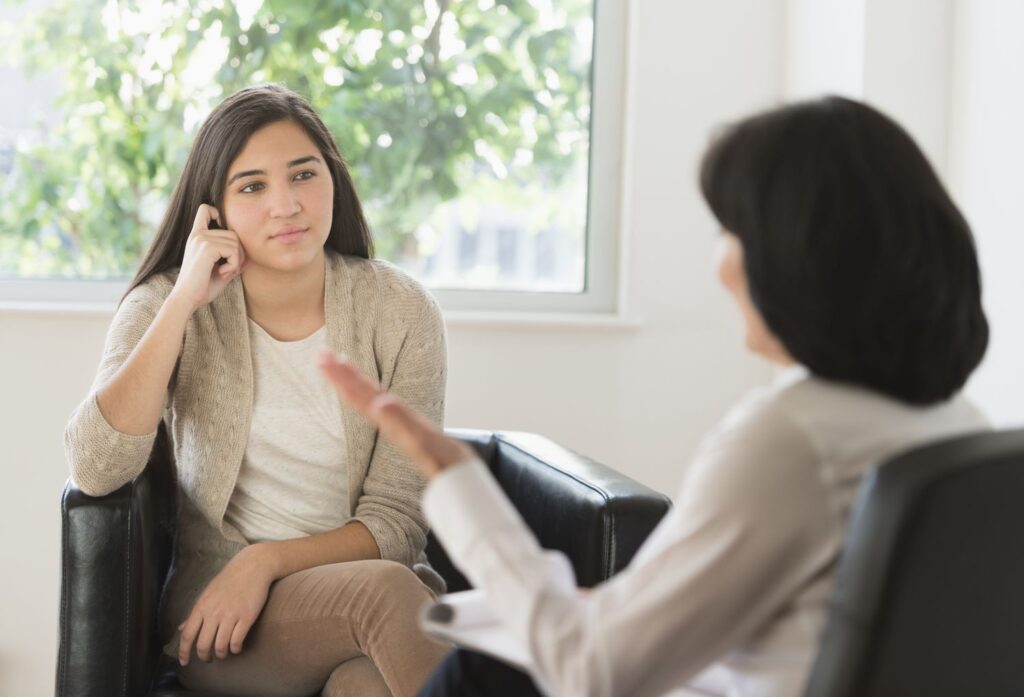Do you ever feel like you’re stuck in a fog and can’t see the light at the end of the tunnel? Depression can feel like that. It’s more than just feeling down or having a bad day—it can be a deep, overwhelming emotional struggle that affects every part of your life.
It doesn’t matter what age, gender, or background you are. Most of us have had it at some point. You not only feel sad and hopeless. You can experience physical symptoms, too, like tiredness, weight change, and wanting to be isolated.
In order to move past this, you need depression counseling. This type of help allows you to move through tough times and come out stronger than before. You might feel ashamed for going through this. But know that you are not alone and that there is help available.
What Is Depression Counseling?
In essence, it is a therapeutic process. It can help you manage your symptoms as best as you can. You get to have a safe, non-judgmental, and supportive space to explore your thoughts, emotions, and experiences.
Using open communication and structure, your therapist will guide you through exercises to help you get through the thought processes leading you to feel a certain way. You gain a better understanding of your condition and develop coping skills you can apply in your daily life. The goal is to free you from the clasp of hopelessness and spiral into the abyss.
Types of Depression Counseling
Cognitive-Behavioral Therapy (CBT)
CBT targets the negative thoughts and behaviors linked to depression. It helps you learn healthier thinking and coping skills. A counselor can help recognize unreasonable or harmful thoughts and replace them with healthier, more positive ways of thinking.
For example, someone suffering from depression may feel like they are worthless or unlovable. Through CBT, they can learn to confront these beliefs and replace them with more realistic perspectives.
Interpersonal Therapy (IPT)
IPT is about understanding relationships and how they affect your mental health. This type of counseling helps improve communication, resolve conflicts, and build better relationships, eventually reducing feelings of isolation and emotional distress.
Essentially, it’s made to help you develop healthier connections with others. As you learn to move past difficult interactions and exchanges, you might experience a reduction in feelings of isolation and emotional distress. This newfound strength will not only improve mental health but also encourage a stronger support system and increase overall well-being and resilience in the face of future challenges.
Psychodynamic Therapy
This therapy explores how unconscious thoughts and emotions can lead to depression. It helps you to understand your past experiences and find better ways to deal with them. Psychodynamic therapy brings your unconscious parts to light and helps you work through them in a safe and supportive environment.
Through this process, you can begin to release old emotional wounds and grow healthier coping mechanisms, leading to long-term healing and personal growth. Your relationship with the therapist is a safe space for this exploration, encouraging a sense of empowerment and emotional resilience.
The Benefits of Counseling for Depression
Better Mental Health
Depression counseling can help you manage your symptoms as time goes by. You may have fewer feelings of sadness, hopelessness, and insecurity. It will be a lengthy journey, but with the right support, you can eventually learn to gain a better perspective. Better mental health means fewer negative thoughts, which can greatly improve your quality of life. You’ll be better equipped to handle challenges and regain control of your life.
Better Self-Awareness
Depression can lead to harmful thoughts and feelings. With therapy, you can break free from those negative thoughts and gain a better sense of yourself. You’ll be able to recognize your triggers and manage your reactions to them accordingly.
Better Relationships
Depression can also sometimes affect your relationships with loved ones. Therapy can help you communicate better with people closest to you, like family and friends. By cultivating these relationships, you enjoy having a support system that is there for you when you need it most.
The Right Counselor, The Right Journey
The road to emotional well-being is personal. For a lot of us, finding the right counselor is a key step in achieving that. You need to decide first what you wish to gain out of therapy. Is it to have better relationships? To lessen negative thoughts? Maybe you have an experience in the past that’s keeping you from moving forward. We’ve discussed above how different types of depression counseling from a therapist can help you address specific issues.
You also want to make sure your counselor is licensed and has experience dealing with cases similar to yours. During your sessions, your counselor should make you feel understood and supported. Remember, this is a safe space. You might need to go through several counselors (or not!) before you can find the right one. But it’s well worth the time!
Taking The First Step
Asking for help is a huge step towards helping yourself and healing. It will help you see your life with a fresh perspective. Remember, you don’t have to face this challenge alone—take the first step toward healing and find the support you deserve.







